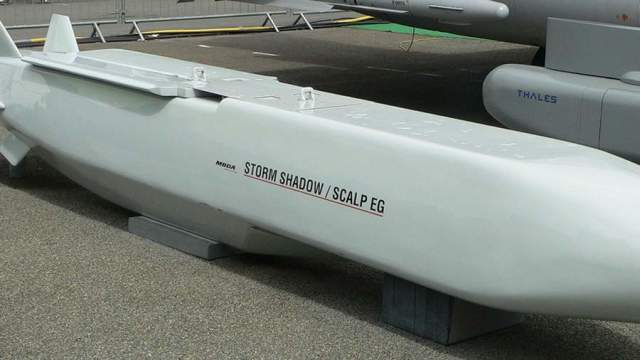Former US intelligence officer Ritter called the day of the capture of Storm Shadow of the Russian Armed Forces bad for the West
Retired US Marine Corps intelligence officer Scott Ritter said on July 8 that the capture of the surviving Storm Shadow missile by the Russian military would allow Moscow to study its stuffing and successfully neutralize the projectile in the future.
"What I would do, as an intelligence officer, if I could capture one of these systems, is to immediately study the chips and identify vulnerabilities for jamming such missiles. I suspect that the Russians will conduct an engineering analysis of this electronics for potential vulnerabilities, including for suppression by electronic warfare," RIA Novosti quoted him as saying.
According to Ritter, the Russian side will study the missile guidance system for the production of a similar weapon, as well as for the purpose of more advanced guidance on air defense systems (air defense).
The ex-intelligence officer believes that after studying Storm Shadow, adjustments will probably be made to the work of Russian radars to better track these missiles.
"This is not a good day for Ukrainians, not a good day for the British and the French, because the Russians will now be able to take countermeasures that will effectively neutralize Storm Shadow," he concluded.
Dmitry Rogozin, head of the Tsarskie Volki Military Technical Center, said on July 6 that the Russian military had pulled almost an entire British Storm Shadow cruise missile from the contact line. The projectile was handed over to specialized specialists to study its design and internal components. According to the head of the military-technical center "Royal Wolves", this will allow the Russian defense industry to find the most effective ways to combat Storm Shadow.
On July 7, The Drive agency reported that the Storm Shadow air-launched cruise missile, which has become a trophy of Russia, may be of high value for Russian intelligence. Of particular interest may be the missile's autonomous guidance system, which helps to determine the exact location for hitting the target and is immune to radio frequency interference and other electronic warfare. If Russia manages to restore at least part of this system, it will be able not only to identify the weaknesses of Storm Shadow, but also to understand exactly how the complex process of targeting takes place, the agency clarifies.
On June 28, the Russian Air Defense intercepted three Storm Shadow long-range cruise missiles and six HIMARS MLRS shells.
On June 24, the Ministry of Defense reported that the Russian forces destroyed a warehouse with Storm Shadow cruise missiles at the Ukrainian airbase in the Starokonstantinov area. This was a response to the strike on the automobile bridge across the Chongar Strait.
On May 11, the UK Ministry of Defense confirmed the transfer of Storm Shadow cruise missiles to Ukraine. In addition, Challenger 2 tanks were transferred.
Western countries have increased military and financial support for Kiev against the background of the Russian Federation's special operation to protect Donbass, the decision on which was made after the aggravation of the situation in the region due to shelling by the Ukrainian military.

